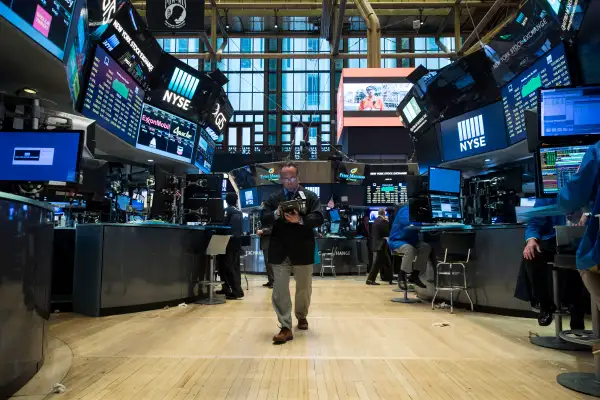It Took 17 Years, but Tech Stocks Have Finally Recovered From the Dotcom Crash
Money is not a client of any investment adviser featured on this page. The information provided on this page is for educational purposes only and is not intended as investment advice. Money does not offer advisory services.

At long last, tech stocks have finally recovered all the losses they suffered during the bursting of the dotcom bubble in 2000.
It only took 17 years.
The S&P 500 Information Technology Index closed Wednesday at an all-time high of 992.3. In doing so, it broke the previous record of 988.5, which was set back in March 2000.
In the intervening years, tech shares had lost as much as 80% of their value before beginning the slow ascent back to the top of the market. That ultra-slow recovery highlights how long it can take stocks to come back from investor manias and bubbles like the tech bubble, which burst in 2000, or the housing bubble that began to burst in 2007.
Yet just as soon as tech shares dug themselves out of this epic hole, some companies find themselves in yet more froth.
While the tech sector, defined broadly, has taken years to get going, some of the buzziest names in the market have been on a tear.
The so-called FANG stocks — Facebook, Amazon.com, Netflix, and Google parent Alphabet — have gained about 1,200% on average during the current eight-year bear market.
Today, the market value of those four stocks plus Apple is greater than the gross domestic product of the United Kingdom.
"We have a tech bubble," says Rob Arnott, chairman of the investment management firm Research Affiliates. "It's certainly less dramatic than the one we had back in 2000. Valuations aren't as high as they were in 2000 — but that doesn't mean they're sustainable."
Tech stocks in the S&P 500 index now trade at a price/earnings ratio of 18.4, according to FactSet, based on projected sector profits in the coming 12 months. That means tech is now trading at a 28% premium to tech companies' valuations over the past decade.
To be sure, that's nothing compared to the triple digit P/Es seen in the late 1990s. And tech back then wasn't just in a financial bubble, but a cultural craze too — a component you're not necessarily seeing today.
"People aren't quitting their jobs to day trade," notes Terri Spath, chief investment officer for Sierra Investment Management.
Pankaj Patel, head of quantitative research at Cirrus Research, adds that "back then, your taxi driver would tell you why he's buying Yahoo shares. Or you'd go for a shoe polish at Penn Station and the shoe shiner starts talking about tech stocks."
"When my Uber driver starts talking tech, I'd worry," he adds.
Still, there are other signs that a bubble could be forming. Among them:
- For a brief moment, Tesla became the most valuable car company in America — overtaking General Motors for several weeks before slipping to a close second place — despite the fact that it remains a profitless startup.
- Of the 29 major Wall Street analysts that follow the stock, 24 rate Amazon either a "strong buy" or "buy," according to Zacks — while only one analyst rates the stock a sell. That's despite Amazon's high price tag: It trades at a price/earnings ratio of 193, according to Morningstar.
- Priceline just became the first tech stock to hit an eye-popping $2,000 a share. And Amazon shares are up above $1,000 a share.
- Tech is back to being the biggest sector in the market, representing about a quarter of the S&P 500. That's still well below the one-third share of the market that tech stocks occupied in the late 1990s. But remember that this figure does not include several big stocks that the general public regards as "tech" but that S&P classifies as "consumer discretionary" stocks — a list that includes Amazon, Priceline, and Netflix. Moreover, Tesla isn't even in the S&P 500, despite being valued at more than $53 billion.
"Between you, me, and the fencepost, I'm nervous as hell," says James Stack, president of the InvesTech Research.
Even if you don't think this sector is in a bubble, Stack says, at the very least "tech will carry a valuation risk going into the next downturn."
